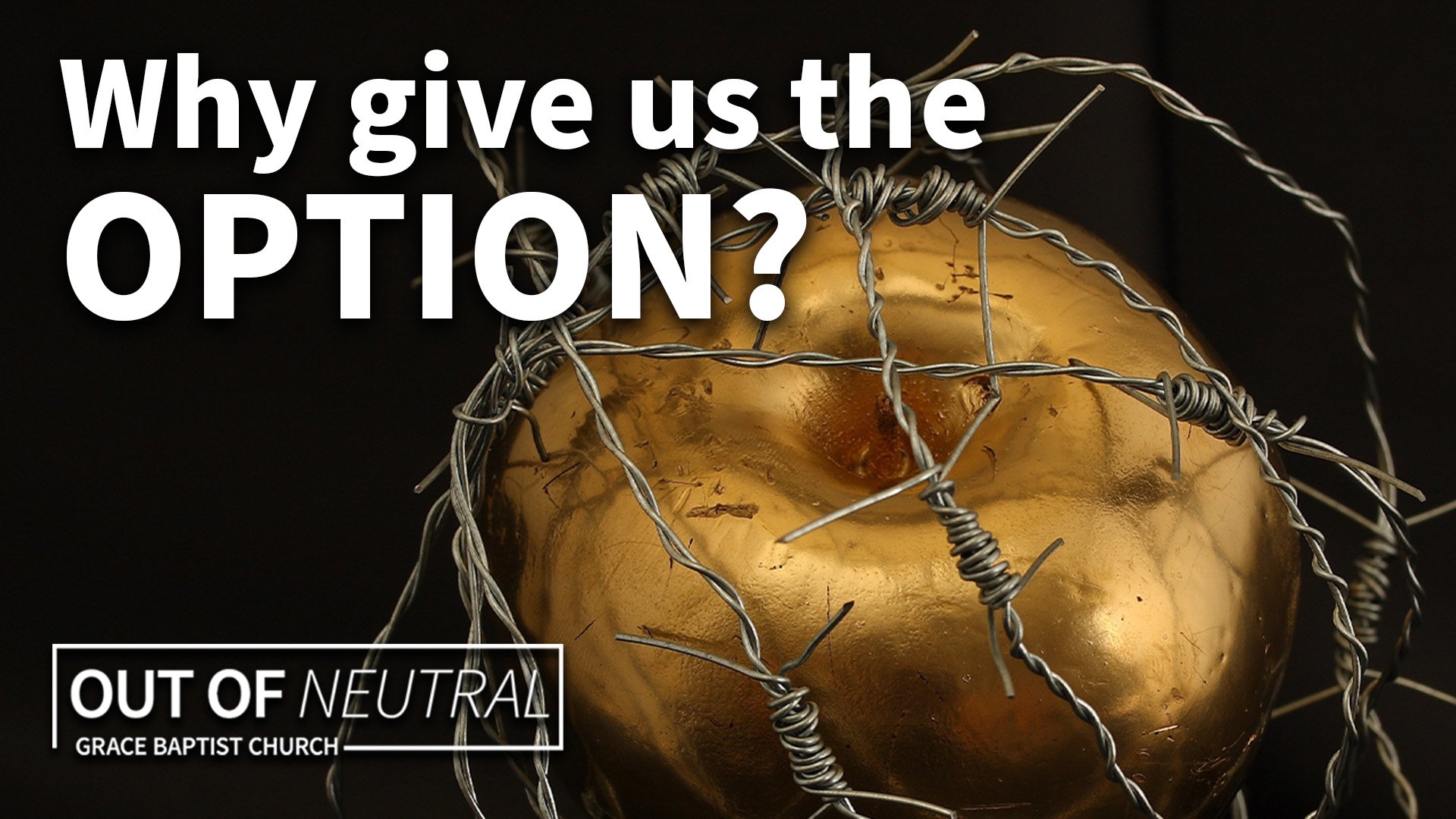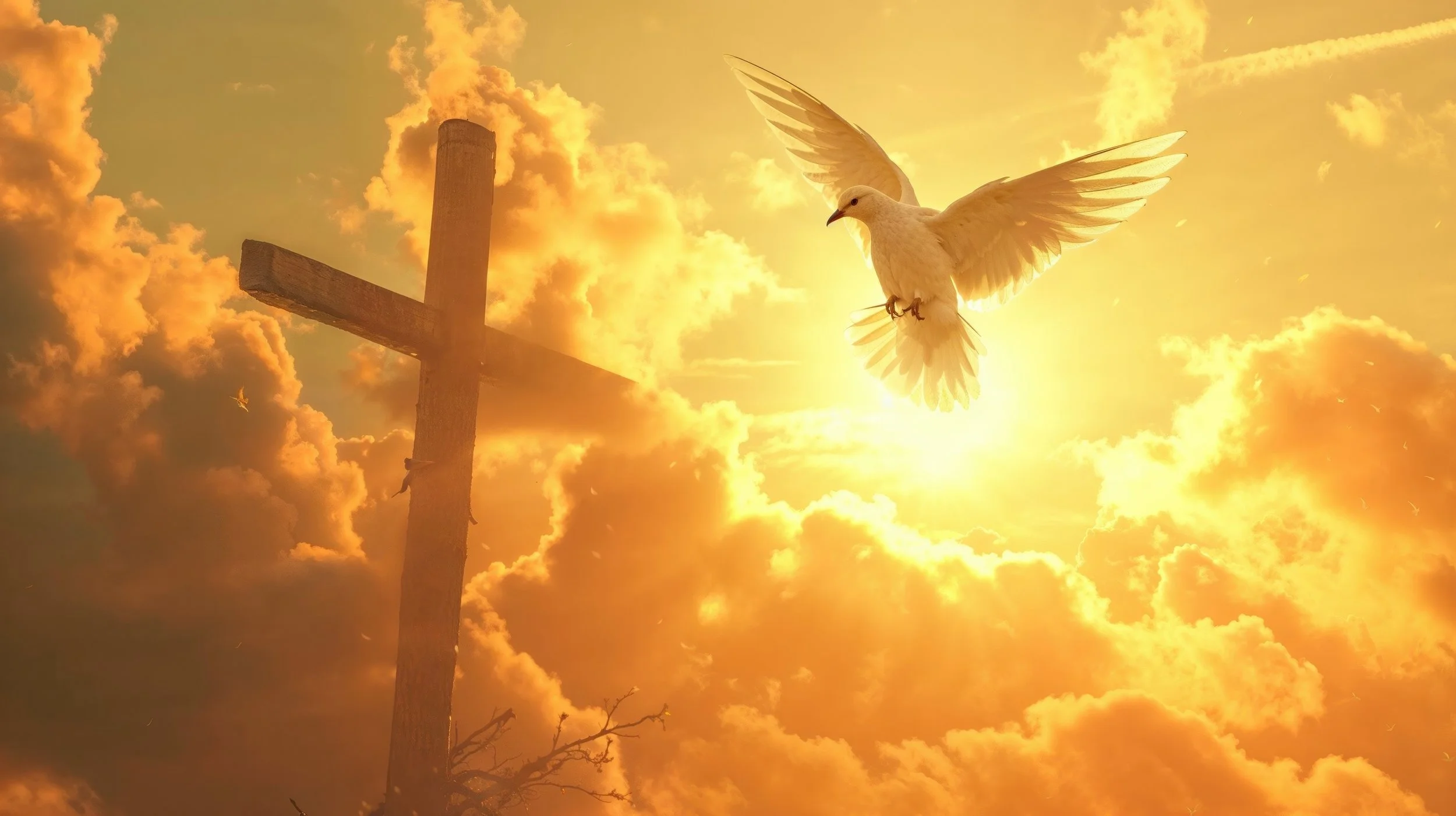Click on the image above for the video of this article or keep reading below for the text version.
So many of life’s questions go back to the garden. Why is there so much violence in the world? Why so much hatred? Why is there suffering? Why is there disease? Because Adam and Eve ignored God and chose the fruit of the knowledge of good and evil. According to the Bible, it all started with that fateful decision. But that still begs the question, “Why didn’t God just prevent them from sinning?” Couldn’t He have just removed the temptation or given them such an aversion to it that they never would have gone near it? Parents put up safety gates to keep their toddlers from falling down stairs. Couldn’t God have just put a big gate around the tree of the knowledge of good and evil?
So that we could be free?
Most Christians answer this question with some version of the importance of God granting humans free will. Yes, we put safety gates up for toddlers but they’re not a great idea for teenagers or adults. Real relationships require trust, and it’s in a context of freedom that trust can be given and reciprocated. Parents allow their teenage children to break rules and experience often painful consequences as a healthy part of the maturing process. Is this all that’s happening?
Rebecca McLaughlin deals with this question in her book “Confronting Christianity: 12 Hard Questions for the World’s Largest Religion.” She suggests that if the only point of allowing sin was to grant us free will “it renders the whole of human history a cosmic waste of time.” Surely there could have been a more efficient way to establish a relationship of trust between God and humanity! She points in another direction altogether.
So that we could know God more intimately?
McLaughlin compares the kind of relationship that is possible now, compared to before the fall.
In the early Genesis narrative, Adam and Eve knew God as Creator and Lord—perhaps, even, as friend. But Christians know Jesus far more intimately: as Savior, Lover, Husband, Head, Brother, Fellow Sufferer, and their Resurrection and their Life.
Adam and Eve knew God’s love, but there was a limit to how much they could grasp it because they didn’t know anything else. If your mom was a 3-star Michelin chef, you’d still love her food, but it would be as you tasted other things that you’d realize how good her cooking really was. Having experienced how unloving people can be and even how selfish and shallow our own love can be, we see more clearly the perfection of God’s love for us.
If we had been kept from sinning, we might always assume that God just loved us because we were so lovable. Many people “love” their Roomba because it’s programmed to clean their floors for them, but we wouldn’t celebrate that kind of love. Someone with an unflinching dedication to a hopelessly malfunctioning and even defiant vacuum cleaner would stand out. Through the fall, we see a God who loves the unlovable. We see a God whose love never tires. His love perseveres in the face of rebellion, indifference, and mistrust. Few of us would even pay for our enemy’s lunch. God proved His love by dying for those who would kill Him (Romans 5:7-8).
Probably the most terrible consequence of our sin, humanly speaking, is the pain that it causes. Sin unleashed untold suffering in our world. But even that suffering makes a depth of relationship with God possible that we would otherwise never have known. Because the Bible reveals a God whose love drove Him to enter our suffering and bear the worst of it in our place. The closest human relationships are often forged in difficult times. When you’ve been through the war with someone – literally or metaphorically – there’s a special bond that you share. God has been through the war with us. He’s been working to redeem the mess that we’ve made and He’s borne the suffering we’ve inflicted. Because He has, we can know Him at a whole different level. And according to the Bible that’s the point of it all. As Jesus said, “And this is eternal life, that they know you, the only true God, and Jesus Christ whom you have sent” (John 17:3).
I’ll let Rebecca McLaughlin have the last word.
Christians are promised that one day, God “will wipe away every tear from their eyes, and death shall be no more, neither shall there be mourning, nor crying, nor pain anymore” (Rev. 21:4). But we are not promised that God will not allow us to cry in the first place. What end could possibly be worth all this pain? Jesus says he is.
In awe of Him,
Paul
P.S. If this is new to you and you think it’s something you’d like to explore, I’ve written a free 12-week course called The Unstuck Life that walks you through the essentials of Jesus’ teachings in daily bite-sized messages that you can read or watch by video. To learn more, go to www.gracebc.ca/getunstuck.










